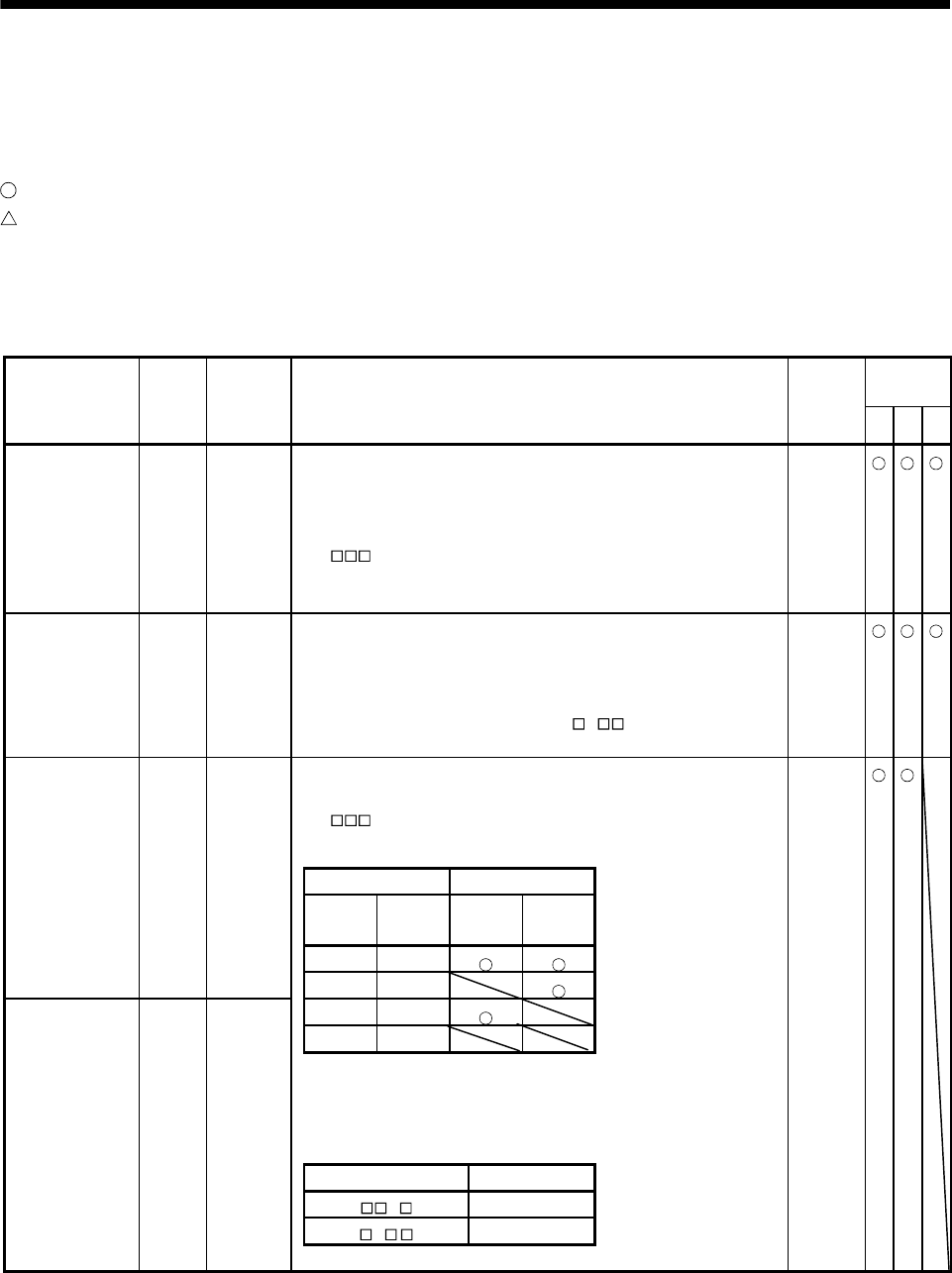
3 - 15
3. SIGNALS AND WIRING
3.3.2 Signal explanations
For the I/O interfaces (symbols in I/O division column in the table), refer to section 3.6.2.
In the control mode field of the table
P : Position control mode, S: Speed control mode, T: Torque control mode
: Denotes that the signal may be used in the initial setting status.
: Denotes that the signal may be used by setting the corresponding parameter among parameters 43 to
49.
The pin No.s in the connector pin No. column are those in the initial status.
(1) Input signals
Control
mode
Signal Symbol
Connector
pin No.
Functions/Applications
I/O
division
PST
Servo-on SON CN1B
5
Turn SON on to power on the base circuit and make the servo
amplifier ready to operate (servo-on).
Turn it off to shut off the base circuit and coast the servo motor
(servo off).
Set "
1" in parameter No. 41 to switch this signal on
(keep terminals connected) automatically in the servo
amplifier.
DI-1
Reset RES CN1B
14
Turn RES on for more than 50ms to reset the alarm.
Some alarms cannot be deactivated by the reset signal. Refer to
section 10.2.
Turning RES on in an alarm-free status shuts off the base circuit.
The base circuit is not shut off when "
1 " is set in parameter
No. 51.
DI-1
To start operation, turn LSP/LSN on. Turn it off to bring the
motor to a sudden stop and make it servo-locked.
Set "
1" in parameter No. 22 to make a slow stop.
(Refer to section 5.2.3.)
(Note) Input signals Operation
LSP LSN
CCW
direction
CW
direction
11
Forward
rotation stroke
end
LSP CN1B
16
01
10
00
Note. 0: off
1: on
Set parameter No. 41 as indicated below to switch on the signals
(keep terminals connected) automatically in the servo amplifier.
Parameter No.41 Automatic ON
1 LSP
1 LSN
Reverse rotation
stroke end
LSN CN1B
17
DI-1


















